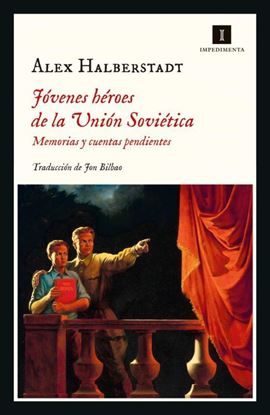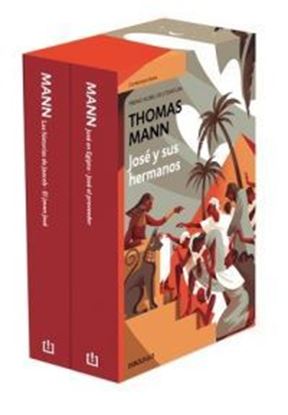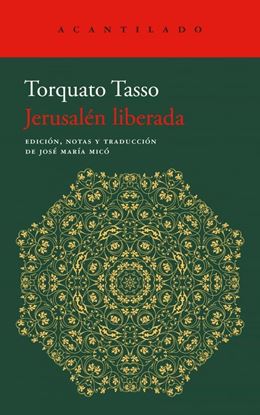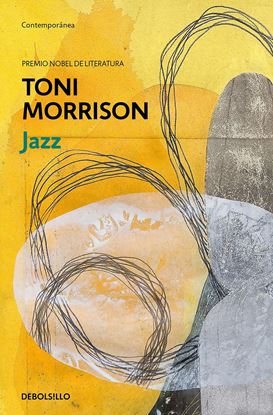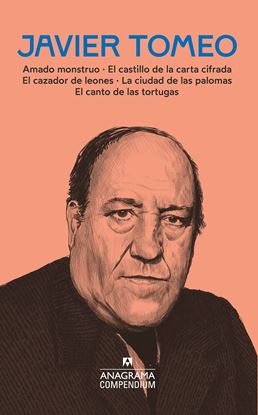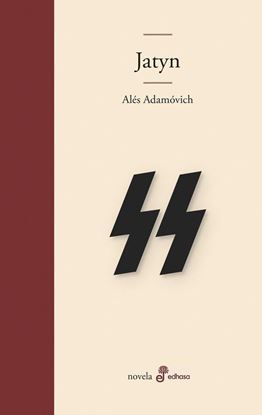

JOVENES HEROES DE LA UNION SOVIETICA
Con nueve años, Halberstadt le dice a su mejor amigo que va a abandonar la Unión Soviética, a lo que este responde entristecido: "Ya no podrás morir por tu país". Años después, el autor indaga en el pasado para dar respuesta a sus miedos irracionales, bloqueos emocionales y pesadillas recurrentes. De Moscú a Ucrania, de Lituania a Nueva York, lo personal es indiscutiblemente político en una narración a la vez divertida y aterradora. Los recuerdos de su abuelo de la KGB, las migraciones de su familia judía, las peleas de sus padres en el Moscú de los 70 y, finalmente, su propia experiencia: la de un niño que crece a caballo entre el Tío Sam y la Madre Patria, que carga con el miedo de tres generaciones, y que encuentra la forma de vengarlos de la mejor manera posible: viviendo y recordando.
995
746
JOSE Y SUS HERMANOS (ESTUCHE) (BOL)
La monumental tetralogía bíblica de Thomas Mann, obra cumbre del autor alemán.El presente estuche reúne en dos volúmenes las cuatro novelas de tema... Leer másLa monumental tetralogía bíblica de Thomas Mann, obra cumbre del autor alemán.El presente estuche reúne en dos volúmenes las cuatro novelas de tema bíblico que componen la tetralogía «José y sus hermanos», escrita entre 1926 y 1943 y considerada por Thomas Mann su «pirámide». Ambientadas en Oriente Próximo en el siglo XIV antes de la era actual, Las historias de Las historias de Jaacob , El joven José , José en Egipto y José el proveedor desarrollan la historia de Jaacob y su hijo José, descendientes directos del patriarca Abrahán. Mann expande cada episodio de su fuente -los capítulos 27 a 50 del Génesis- con una prosa serena e inquisitiva, dotando a Jaacob y José de cualidades reconociblemente humanas. Conforme avanzan en sus aventuras, estos héroes imperfectos nos hablan de la responsabilidad individual frente a lo colectivo, la historia frente a la leyenda y la razón frente a la insensatez. El conjunto es una saga de dimensiones wagnerianas en la que el excepcional novelista alemán explora los mitos fundacionales de la civilización occidental.
1,700
1,275
JERUSALEN LIBERADA
Con Jerusalén liberada, Torquato Tasso se propuso escribir un poema épico a la altura de la Ilíada y la Eneida, pero no inspirado en la mitología, sino en un hecho histórico: la conquista cristiana de Jerusalén durante la Primera Cruzada. El sitio de la ciudad ofrecía el marco para la restauración de la epopeya clásica, pero la imaginación poética le infundió su pathos, porque Tasso jamás renunció a la voluntad de asombrar al lector ni a la convicción de que el verso era el medio para lograrlo. Mezclando verdad y ficción, armas y amores, fábula y tragedia, creó una epopeya moral sublime, reflexiva y melancólica, y no sólo cantó la gloria de los vencedores, sino que puso la poesía al servicio de los vencidos. Publicada en 1 5 8 1, la obra no tardó en convertirse en una de las más leídas y apreciadas de Europa, e inspiró a generaciones de pintores, músicos y escritores: de Tintoretto a Delacroix, de Monteverdi y Händel a Dvořák, y de Milton y Rousseau a Goethe y Byron, todos sucumbieron a los encantos de esta extraordinaria gesta que los melódicos versos de José María Micó logran verter al español con precisión y desenvoltura.
3,200
2,400
JAZZ (BOL)
Una potente novela sobre un crimen pasional y sus consecuencias ambientada en el Harlem de la década de 1920, con la firma inconfundible de Toni Morrison
Cuando Violet y Joe Trace, un matrimonio entrado en años, llegan a Nueva York huyendo de la intolerancia de su Virginia natal, creen que podrán vivir en libertad sin importar el color de su piel. Pero el Harlem de los años '20, foco de un vibrante renacimiento cultural, les depara apuros inesperados. Joe acabará cometiendo un horrendo crimen pasional, mientras que Violet se verá obligada a convivir con sus celos y las repercusiones del acto de su marido. Retrato de una comunidad en plena ebullición, Jazz es una potente novela sobre conflictos raciales, ilusiones perdidas y las injusticias padecidas por las mujeres en el siglo XX.
800
600
JAVIER TOMEO. 5 NOVELAES
Cinco novelas para adentrarse en los territorios singularísimos, cómicos e inquietantes de Javier Tomeo.
Inimitable Tomeo. Imprescindible Tomeo. Maestro de la novela corta, de la frase afilada. Creador de parábolas lacerantes, escenarios extraños y personajes estrambóticos. Manipulador del absurdo, siempre a medio camino entre lo cómico y lo inquietante, hasta llegar a lo espeluznante en ocasiones.
Este volumen reúne cinco magnéticas novelas. En ellas un marqués escribe cartas con la intención de que no sean entendidas; una entrevista de trabajo acaba desvelando oscuros secretos del entrevistado y del entrevistador; un cazador de leones que se ha equivocado de teléfono empieza una perorata irrefrenable; un hombre se convierte en el único habitante de una ciudad poblada solo por palomas; otro hombre, este con un confuso historial psiquiátrico, se instala en una aldea lejana para dialogar con los animales...
Un imaginario literario que discurre entre Kafka y Buñuel, y atrapa al lector en sus redes construyendo un mundo particularísimo. Destinado a ser un excéntrico, un raro, Javier Tomeo ha acabado siendo un autor imprescindible de la literatura española contemporánea, muy admirado también en el extranjero.
1,150
863
JATYN
Corría el año 1943, y Alemania comenzaba a percibir que la victoria final se le escapaba. Pero la potencia del ejército nazi aún ganaba plazas, y toda ella pareció abalanzarse de repente sobre Jatyn, una pequeña aldea en la región de Minsk. A partir de archivos de guerra escondidos y raros registros de algunos testigos, Adamóvich nos narra la desgarradora historia de este pequeño pueblo, donde todos sus habitantes, salvo únicamente cinco, perecieron a manos de un escuadrón de las SS. Entre el frío, el lodo y la nieve, la cruel brigada Dirlewanger los empujó hasta encerrarlos en un pajar… y los quemó vivos. Y, en la sobrecogedora narración que es esta Jatyn, podemos aún escuchar los escalofriantes gritos de mujeres y niños, pues los caídos en la macabra escena cobran vida, por unos momentos, y nos dicen sus últimas palabras… Cruda, sentida, y también lastimosamente real, es ésta la novela más conocida de un autor extraordinario, Alés Adamóvich, nada menos que aquel a quien la Nobel Svetlana Alexiévich reconoce como su maestro. Publicada originalmente en 1972 y llevada a la gran pantalla en 1985, bajo el título Ven y mira, Jatyn es una historia estremecedora que recrea una de las peores matanzas de la enorme carnicería que supuso la Segunda Guerra Mundial. Una historia escalofriante y absolutamente conmovedora, escrita por el autor más importante de Bielorrusia fuera de sus fronteras. Una obra a caballo entre la alta ficción literaria, la novela histórica y la "novela real".
1,600
1,200


